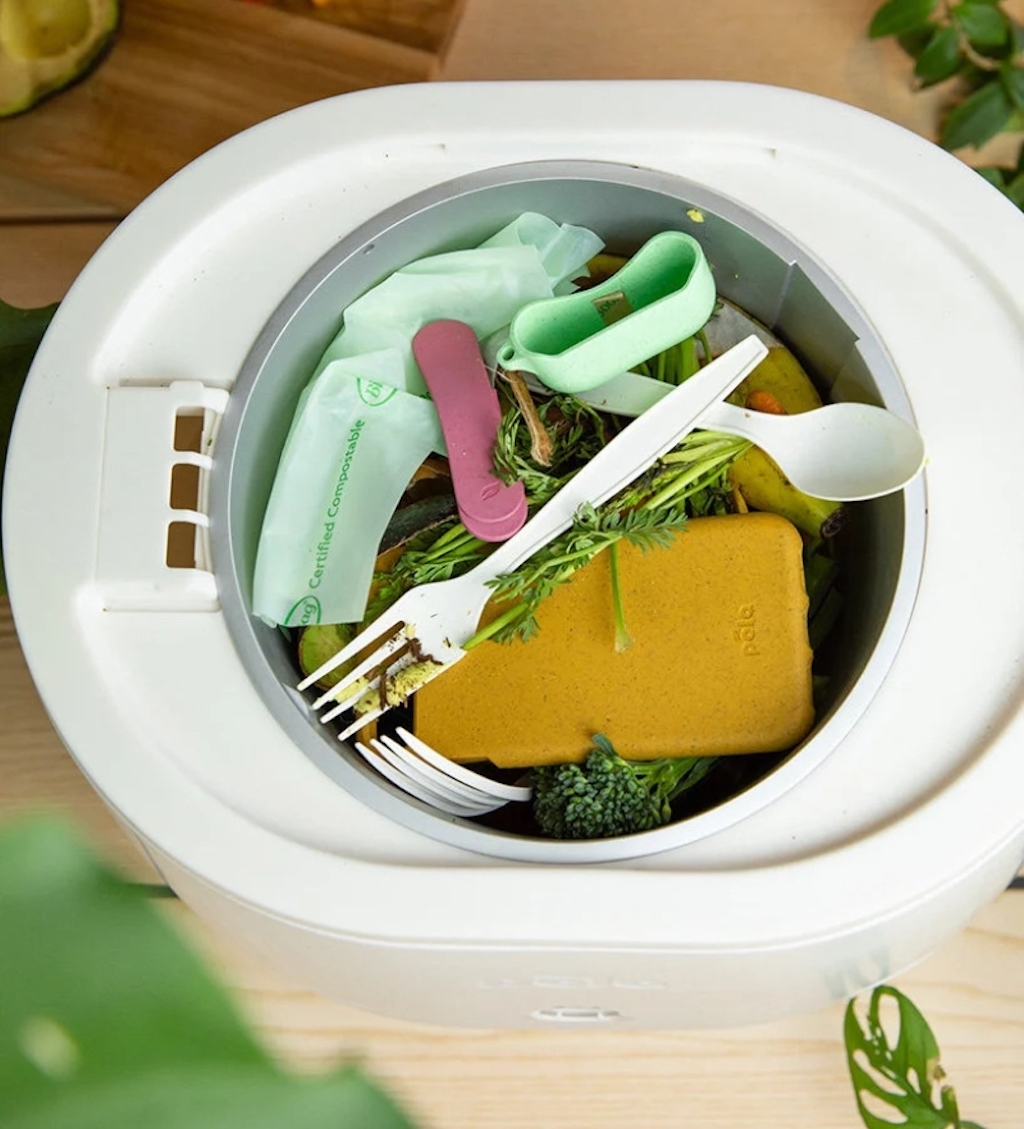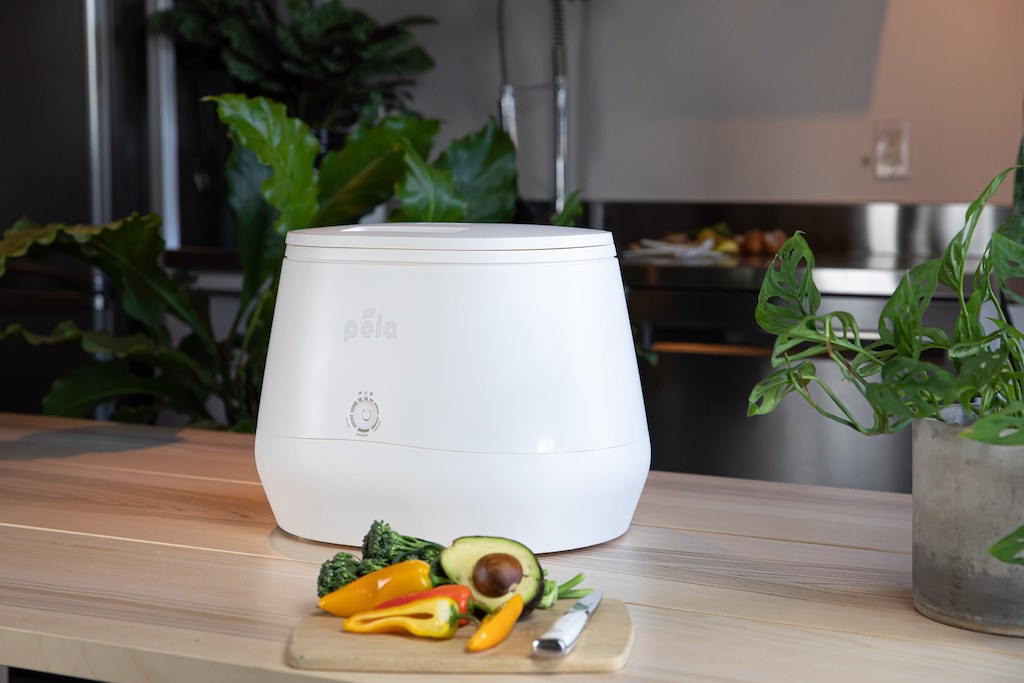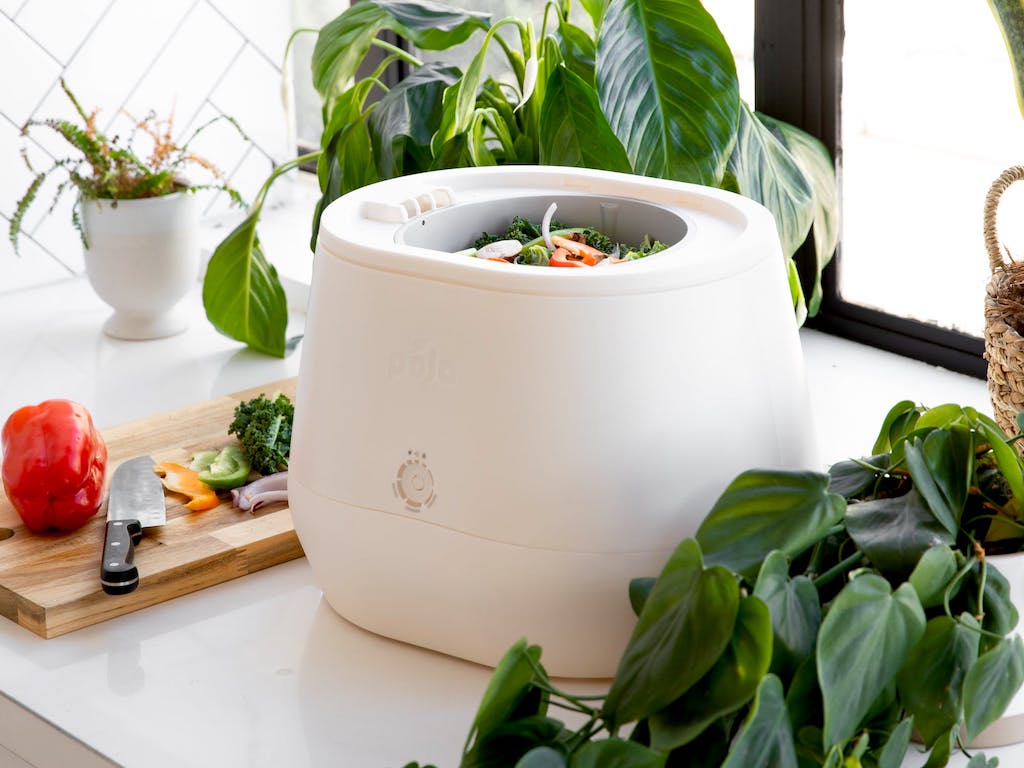3 Mins Read
Lomi, the new home food waste machine launched by compostable phone case brand Pela, has managed to attract more than US$6.8 million from over 18,000 backers through its Indiegogo crowdfunding campaign. The kitchen countertop appliance turns food scraps, cloth and bioplastics into soil within just 24 hours.
Pela’s crowdfunding campaign for its latest product, Lomi, has raised more than US$6.8 million from over 18,000 backers on Indiegogo. The food waste recycling appliance is designed for kitchen countertops, allowing even citydwellers in tiny apartments to transform waste into compost by clicking one button and leaving it overnight.
The machine also takes in boxes, cloth and bioplastics, turning them into dirt within around 24 hours, according to Pela, who claims the product is the first-of-its-kind, allowing those without access to backyard composts, curbside compost pick-up services or a nearby industrial composting facility to process their own waste at home.
“The arrival of Lomi is the beginning of a new era for Pela, further positioning the brand as a leader within the waste management space,” said Matt Bertulli, CEO and co-founder of Pela, the Vancouver-based company famous for its compostable phone cases, digital watch bands and AirPods cases.

The arrival of Lomi is the beginning of a new era for Pela, further positioning the brand as a leader within the waste management space.
Matt Bertulli, CEO & Co-Founder, Pela
“Similar to having a dishwasher, our goal is for every household to have a Lomi. Its contemporary design and seamless function will make it easier than ever for consumers to shift the way they approach household waste, and composting.”
Launching Lomi through the Indiegogo campaign, which opened on April 20, users are able to pre-order the machine for a discount off the retail price starting from US$299 up. Backers are expected to have their product shipped to their doors by November 2021.
Lomi is able to convert waste into soil so quickly because its tech speeds up the breakdown of food waste into fragmented biomass – a similar process to how earthworms mix plant tissue into the soil, but “without the smell and mess,” says Pela.
This fragmented biomass then allows for more surface area for microbes to crow, which in turn speeds up the composting process, leaving users with a natural soil amendment full of macro and micronutrients with a high organic content.

Similar to having a dishwasher, our goal is for every household to have a Lomi.
Matt Bertulli, CEO & Co-Founder, Pela
Read: Complete guide to composting in Hong Kong & tackling food waste in the city
Speaking about the inspiration behind Lomi going live with the crowdfunding campaign, Bertulli told Fast Company: “We started to just wonder, could you actually take what nature is going to do in five or six months, and can you apply some technology to that and speed it up dramatically?”
Once the processor is done with breaking down all the food scraps, Lomni users simply have to take the end dirt product outside, dropping it off at community gardens or even in bins if their area is covered by curbside composting.
“It reduces the volume and weight of what you’re putting in your curbside by 80%,” explained the Pela co-founder. “That’s awesome for municipalities because municipalities are largely paying for the stuff by weight. The less every household is sending out, the less cost burden there is on taxpayers funding waste disposal.”
All images courtesy of Lomi / Pela.



